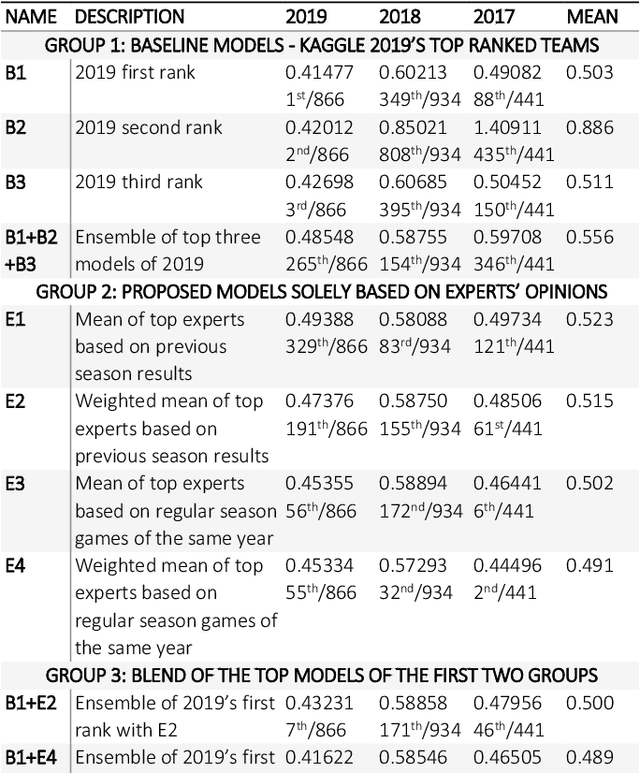Using Experts' Opinions in Machine Learning Tasks
Paper and Code
Aug 10, 2020

In machine learning tasks, especially in the tasks of prediction, scientists tend to rely solely on available historical data and disregard unproven insights, such as experts' opinions, polls, and betting odds. In this paper, we propose a general three-step framework for utilizing experts' insights in machine learning tasks and build four concrete models for a sports game prediction case study. For the case study, we have chosen the task of predicting NCAA Men's Basketball games, which has been the focus of a group of Kaggle competitions in recent years. Results highly suggest that the good performance and high scores of the past models are a result of chance, and not because of a good-performing and stable model. Furthermore, our proposed models can achieve more steady results with lower log loss average (best at 0.489) compared to the top solutions of the 2019 competition (>0.503), and reach the top 1%, 10% and 1% in the 2017, 2018 and 2019 leaderboards, respectively.
 Add to Chrome
Add to Chrome Add to Firefox
Add to Firefox Add to Edge
Add to Edge